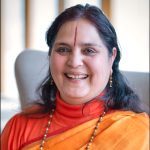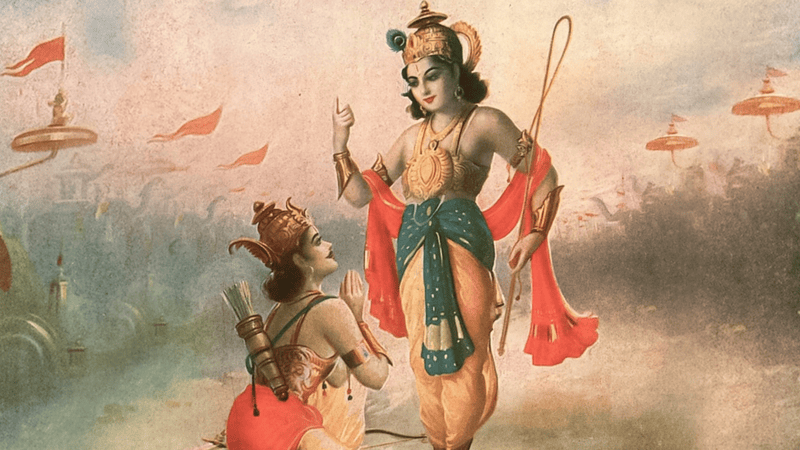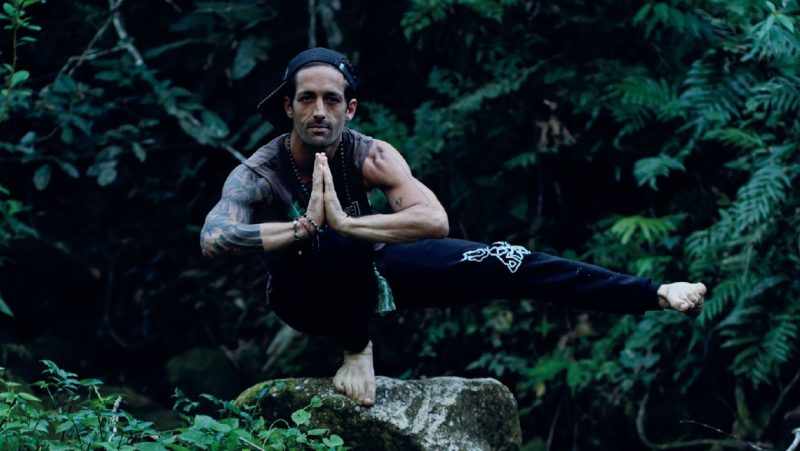
How to Overcome the Fear of Losing a Loved One
Embracing Eternal Existence: Conquering Fear and Attaining Moksha
Reading time: 5 minutes
Fear is a primaeval emotion. It is a basic survival instinct nature has inbuilt in us. People are afraid of all sorts of things - fear of heights, fear of closed spaces, fear of open spaces, fear of spiders, fear of darkness, and so on.
The fundamental cause of fear
The root of all fears is the fear of dying, the fear of one's death and the death of a loved one.
'I am, and I should continue to be. These are my loved ones, and they should continue to be.' This is what everyone wants. The desire to live forever is deeply rooted in our minds. If I am this body-mind, then, naturally, I will be afraid of its death. If I were this body, I would invariably fear not existing after the body's death.
This attachment to one's own body brings forth the attachment to other people. We are concerned for the well-being of only those we regard as 'mine'. My husband, my wife, my mother, my father, my partner, my child. After all, are we really concerned for the well-being of strangers inhabiting this planet? As long as I am fine and my loved ones are fine, I am okay.
We fear the prospect of not existing and our loved ones not existing. But the body is perishable, as is everything in this mortal world. If I am the body, I will die one day. If my loved one is also just a body, they will die one day. This is the irrefutable reality of this ephemeral world. And if I don't accept this reality, fear is inevitable.
How to transcend the fear of death
To eradicate the fear of death (and hence overcome all fears), one must understand the fundamental reality of one's own existence. If I am the body, I will die and, thus, cannot escape from the fear of the prospect of my non-existence. But the question arises: Am I really just this body? Am I really just this unit of body-mind?
We use the pronoun I to refer to ourselves and the possessive pronoun my or mine to refer to things belonging to us. And 'mine' is separate from 'I'. So, if I am the body and mind, I should say, 'I body, I mind.' But we don't, do we? We say, 'My body, my mind.' This shows that somewhere we know we are not the body-mind, but we behave as if we are the body-mind.
The only way of overcoming the fear of death is by realising fully that I am not this mortal body; I am not this ever-changing mind. Realising I continue to exist even when the body-mind doesn't, I transcend the root cause of all fear. And how will I realise this? By following the path that culminates in self-realisation.
In a state of deep meditation, you can experience your existence even in the absence of the mind. One can also glimpse being separate from the body through certain practices like yoga nidra. If done correctly, you can see your body separate from you. There are many such methods. Consistent practice under the guidance of a well-qualified master can open up the door to remarkable, transformative experiences.
Acceptance of the mortal nature of this body
It may sound simplistic, but accepting the temporal nature of this body and the entire material world is in itself a decisive step in warding off the sinking feeling one gets, even at mentioning the word 'death.'
Even if you haven't attained self-realisation yet, remember that although the body dies, the mind continues to be. Propelled by the force of unfulfilled desires, a new body is soon acquired with new relations, and the new journey starts afresh. And thus continues the cycle of birth and death. So, even if you regard yourself as no more than a mind, your existence will continue through the perpetual cycle of birth, death, and rebirth.
Conquer death through moksha (liberation)
However, the fundamental question remains: how long will this drama of birth and death continue? It will continue until it all begins to look utterly futile and fuels the ultimate drive to gain eternal freedom (moksha) from this world of suffering.
Realising one's identity as an eternal existence is how to transcend the fear of mortality forever. Attainment of never-ending bliss and freedom from all fears and suffering is the goal of human evolution. Experientially knowing one's real identity is the end of all miseries.
By knowing my own existence, I know that I will never die, and my loved ones will never die. This is the most comforting, the most soothing balm that helps us go through life's losses with unfaltering strength and stability. Once that transpires, what remains to be fearful of?





